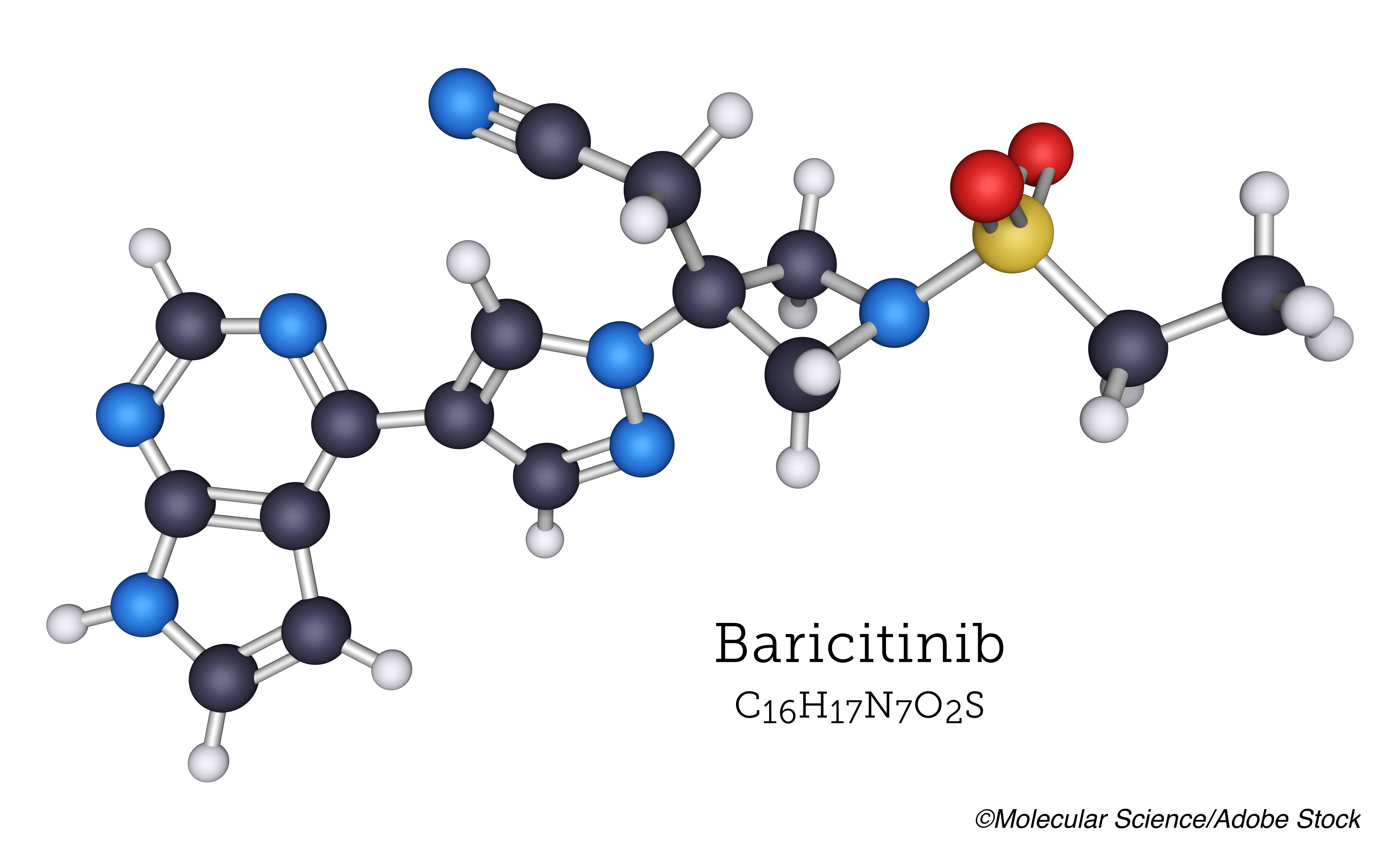
The FDA revised its Emergency Use Authorization (EUA) for baricitinib (Olumiant) to treat Covid-19 in hospitalized patients age 2 years and older who are receiving supplemental oxygen, non-invasive or invasive mechanical ventilation, or extracorporeal membrane oxygenation (ECMO).
The original EUA for baricitinib required that the Janus kinase (JAK) inhibitor be used in combination with remdesivir (Veklury) for this patient population—now, with this new authorization, baricitinib can be used as a standalone treatment, the agency explained. The drug was originally approved in 2018 to treat adult patients with moderately to severely active rheumatoid arthritis who have had an inadequate response to one or more tumor necrosis factor agonist therapies.
“This revision to the EUA for baricitinib was supported by data from the COV-BARRIER clinical trial of hospitalized patients with Covid-19, where baricitinib showed a reduction in the proportion of patients who died through 28 days of follow-up compared to patients treated with the standard of care for Covid-19 alone,” the FDA wrote. “This study did not require baricitinib to be used in combination with [remdesivir] and most of the patients did not receive [remdesivir]. This study provided information that was previously unavailable to the agency at the time of the original authorization.”
The agency added that the COV-BARRIER study “did not raise questions about the safety or efficacy of baricitinib when used in combination with remdesivir” in this patient population, and use of the two drugs in combination is not contraindicated under the terms of the updated authorization.
In the randomized, double-blind, placebo-controlled COV-BARRIER trial, 764 patients were assigned to receive baricitinib 4 mg once a day while another 761 patients were assigned to receive placebo.
“The primary outcome evaluated the proportion of patients who died or progressed to non-invasive ventilation/high-flow oxygen or invasive mechanical ventilation within the first 28-days of receiving baricitinib or a placebo. The estimated proportion of patients who died or progressed to non-invasive ventilation/high-flow oxygen or invasive mechanical ventilation was lower in patients treated with baricitinib (27.8%) compared to a placebo (30.5%), but this effect was not statistically significant.”
One of the key secondary endpoints, the agency added, was death through 28 days of follow-up, for which baricitinib also bested placebo—8.1% of patients in the baricitinib arm died during follow-up versus 13.3% in the placebo arm.
Baricitnib’s label carries a boxed warning for serious venous thrombosis, including pulmonary embolism, serious and possibly fatal infections, and lymphoma and other malignancies. Common side effects include upper respiratory tract infection, nausea, herpes simplex, and herpes zoster.
Baricitinib is manufactured by Eli Lilly.
John McKenna, Associate Editor, BreakingMED™
Cat ID: 190
Topic ID: 79,190,730,933,190,926,192,927,725,928,925,934


